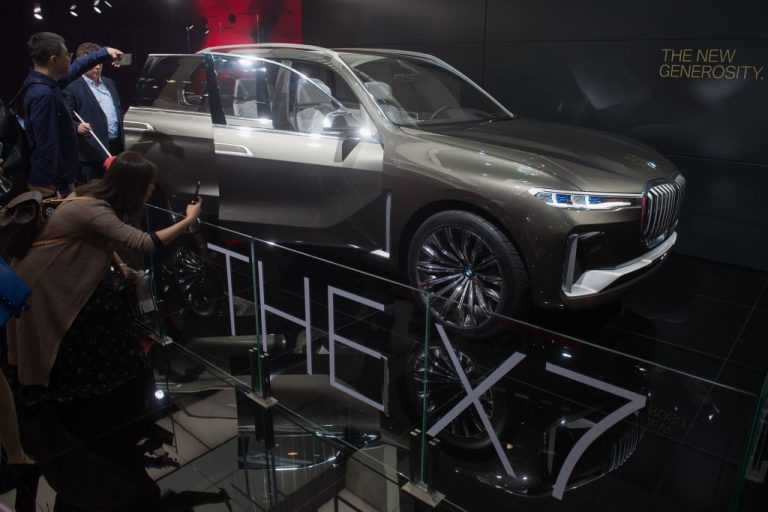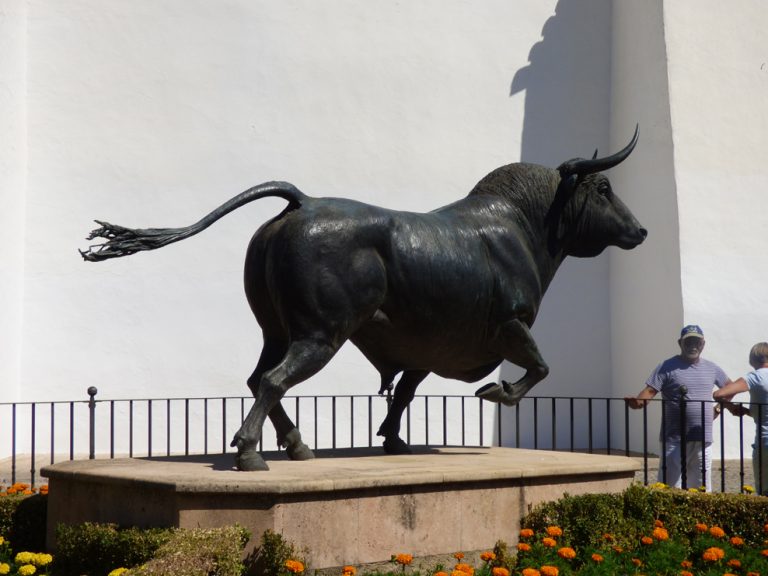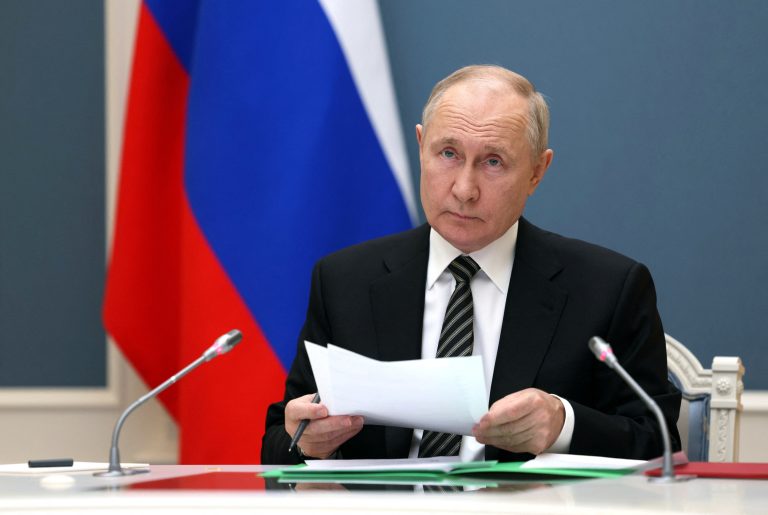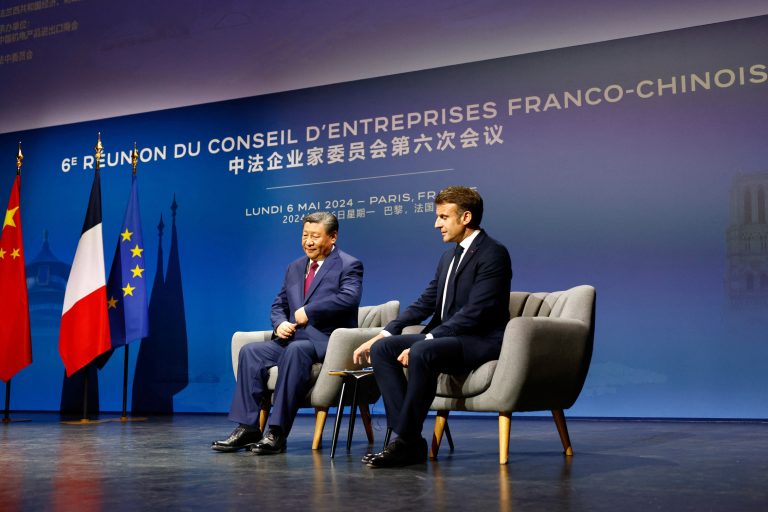A long-running operation to export brand new luxury vehicles from Canada to China for sale in the mainland’s grey market has left dealers and manufacturers vexed, the government paying too much in administrative overhead, and is facilitating a money laundering problem with fundamental ties to Chinese organized crime that plagues British Columbia.
In Part 2 of a 2019 report by Peter German & Associates titled Dirty Money, Turning the Tide – An Independent Review of Money Laundering in B.C. Real Estate, Luxury Vehicle Sales & Horse Racing, German explains that economic conditions in mainland China created by the Communist Party have fostered an environment where high end offerings from manufacturers such as BMW, Porsche, and Mercedes-Benz sell for substantially more than they do in North America. The price delta gives birth to an arbitrage opportunity between China and the rest of the world, which creates a lucrative and illicit grey market.
An organized crime connection
It is important to note the practice of purchasing vehicles for export to other countries does not violate Canadian law. A buyer is free to purchase a vehicle in Canada and export it to another country if it suits their economic or personal purposes.
However, the repetition of this phenomena creates a problem for manufacturers: factory allocation for each region is disrupted, while dealers in the locales where vehicles are exported from suffer from both declines in their pre-owned market from the supply shortage and a shortfall in clients who return to the dealer for service or repeat sales.
Dirty Money says the practice poses a significant threat to Canadian law enforcement’s anti-money laundering efforts because the purchase of vehicles for export “Provide a convenient channel for the proceeds of crime to be placed in the financial system if the car dealerships are willing to accept cash payments”
Success
You are now signed up for our newsletter
Success
Check your email to complete sign up
Earlier in June, Sam Cooper, analyst for Canadian mainstream media outlet Global News and author of Wilful Blindness: How a Network of Narcos, Tycoons and CCP Agents Infiltrated the West, said in an interview with Epoch Times that the Chinese Communist Party uses its notorious United Front Work Department to co-opt overseas institutions, governments, and businesses in order to fulfill its goals, and that the UFWD has been utilizing the Hong Kong Triad organized crime ring for years.
Cooper told American Thought Leaders host Jan Jekielek, “My book again shows cases where state actors in China are seen to be directing these drug trafficking organizations in Vancouver, intervening in gang conflicts between various Triads.”
“So that is proof that someone very powerful in Beijing does control gangs…I can say without a doubt that the influence of the Party comes over and above very high-level transnational gangs.”
German’s Dirty Money report clearly says the grey market China exporting business “Involves large dollar sums leaving China,” which require “the services of an underground banker to repatriate revenue and purchase new inventory.”
“Some of these unregulated banking channels accrue large amounts of illicit cash and dealing with it raises the risk that exporters may be receiving a portion of their revenue from the proceeds of crime.”
How the scheme works
Because of the disruption a wide-spread exporting scheme creates to vehicle production and sales, manufacturers put pressure on franchise owners in various forms such as direct financial penalties, clawbacks, or a withholding of year-end dealer holdback if franchisees are found to facilitate exporters.
“We learned of one new car dealer who had received a substantial penalty from a manufacturer. It refused to acknowledge our request for an interview,” reads the German report.
Because of these measures, dealerships are incentivized to decline direct sales to exporters. This leads to shippers creating a network of “nominee” or “straw buyers,” people who are almost always not in the market or demographic for a brand new luxury SUV, to pose to the storefront as legitimate buyers.
The strawman aims to convince the dealer to allow them to sign a purchase agreement and leave a deposit. If the deal manages to fly under the radar, the nominee will take possession of the vehicle before signing it over to an exporter, who is then able to put it on a shipping container to China lawfully.
The German report says “B.C.’s unique geographic location and ethnography make it an incredibly attractive venue for this activity.”
Vancouver was called the luxury car capital of North America in a 2016 article by Global News. In the article, reporters interviewed a 20-year-old driving a $270,000 Astin Martin Rapide S who said “I just want to buy it…It’s cool.” His passenger told Global it wasn’t even his first luxury car. The driver had crashed his Bentley, was in need of a new car, and purchased the Rapide from the same dealer.
A 2018 article by Bloomberg humorously referred to the University of British Columbia as the “University of Beautiful Cars” because of “the student-owned fleet of Lamborghinis, Aston Martins and Porsches parked in campus lots,” many of which, it notes, are branded with B.C.’s green “N” new driver sticker.
If successful, the straw buyer is paid a cash commission by the exporter in exchange for his services, typically ranging between a few hundred and a few thousand dollars. A 2017 investigative report by CTV Edmonton that approached online advertisements looking to recruit strawmen said an exporter offered them $8,000 to $9,000 if they could secure the purchase of Mercedes’ largest SUV, the GLS450.
When CTV visited an address associated with a different recruitment ad, they were met by a Chinese student who told them what he was doing is “Definitely not illegal, because if it was illegal the dealership would go the legal way to deal with this, but they can’t.”
Auto giant intervention
In order to stop the phenomenon, BMW has resorted to requiring buyers of certain models that are at high risk for exporting, such as the X5 and X7 SUVs, sign a Non-Export Agreement agreeing to neither export the vehicle for a period of 12 months nor participate in any shipping scheme on penalty of civil breach of contract.
BMW also requires its retailers to perform a Know Your Client and Red Flag Checklist on purchasers of vulnerable models to screen for hallmarks typical of straw buyers, such as attempting to purchase multiple vehicles, looking to purchase at a dealership far away from where they live, or deals conducted strictly via phone and email.
Over the evolution of the exporting to China scheme, one of the greatest red flags were buyers who wanted only an in-stock base model X5, specifically in white or black, with payment for the vehicle in full with either cash or a bank draft. Genuine retail buyers often utilize leasing or financing, want options and features, and have flexibility either in color or the ability to wait for factory allocation.
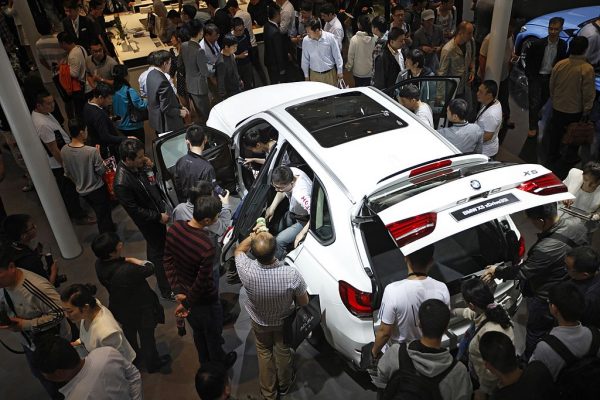
As it became harder and harder to get deals with these characteristics approved by management due to BMW’s oversight, exporters began to recruit strawmen with strong credit scores who could be approved for financing or leasing options through BMW’s inhouse lender, BMW Financial Services.
After being approved for finance or a lease, the nominee would take delivery of the vehicle and transfer it to the exporter to receive their commission. Before the vehicle could be shipped, its lien must be discharged, leading to the exporters cutting BMW a cheque to pay out the contract.
Some peculiar approaches used to discharge the loans have served to tip off BMW Canada one of their makings was about to sail to communist China.
In an Affidavit signed by Norman Shields, VP of Finance and Administration at BMW Canada, to the Cullen Commission, a legal inquiry into the money laundering problem in British Columbia, Shields enclosed as Exhibits to his sworn testimony multiple filings of civil claims against nominee buyers involved in exporting filed by the company’s attorneys in BC courts.
In one case, BMW Canada sought a Court Order against a BC resident with a Chinese name to seize a 2019 BMW X5 40i SUV. The Petition for an Order was filed on Jan. 30, 2019. The strawman took delivery of the X5 on Jan. 10. BMW, who was successful in their application for an Order, said the buyer had already tried to pay out the balance of their financing agreement, but was declined after it triggered an exporting investigation.
A bailiff was sent to repossess the X5, which was located at an address in a retail district in Richmond, a district of Vancouver, according to the vehicle’s GPS. The agent was able to locate the SUV in what appeared to be a mechanical shop whose overhead doors were open, but nobody, neither mechanics nor clerical staff, was working.
The vehicle could not be recovered because it was boxed in amidst what the bailiff described as “several other unplated late model luxury cars.”
The address in the court documents returns a Yelp advertisement for what appears to be a dubious used car dealer whose website is in both Chinese and English and has a WeChat address for contact.
In a second Exhibit, a case of civil forfeiture resulting from a default on a finance agreement with BMW Financial Services triggered by exporting, showed another Chinese-named BC resident who set off red flags when they attempted to pay out their 60-month finance term on an X5 only 7 months into the contract.
In this case, alarms went off for BMW Canada when they received a bank draft in the mail paying out the loan in the same envelope as the payout for a separate vehicle financed by another Chinese-named buyer. Both drafts were from the same Toronto Dominion banking account, issued on the same day, and with an illegible signature.
BMW attempted to track the vehicle, but its GPS had been manually disabled and its straw buyer was either unwilling to, or unable to divulge its location.
The scheme has cost the Provincial government money because BC law allows buyers of vehicles purchased for export to be reimbursed for the Provincial Sales Tax paid at the time of purchase. In BC, a 10 to 20 percent luxury tax is applied to the purchase of vehicles over $57,000.
The German report used this tax benefit to gauge the amount of vehicle exporting being conducted in the Province. Their investigation found that before 2014, while the number of PST rebates being applied for was only around 100, it sharply increased starting in 2014 when BMW released the long awaited F15 revision of the X5. In ‘15 and ‘16, the number stayed at around 700, but went parabolic in ‘17, ‘18, and ‘19 to between 3,500 and 4,600 per year.
The average payout for PST refunds was $6,300 and the BC government gave exporters close to $85 million dollars, in addition to expenses incurred to hire a multitude of additional staff needed to process the landslide of applications.
Government staff involved who spoke with German for his report said one strawman applied for rebates on 25 vehicles, while 1,000 applications were linkable to one exporter alone. They said the applicant often only had a Chinese passport for identification, and “the straw buyers often do not speak English and are ‘clearly just a signature’.”
The tax refunds were directly paid to the exporter by the government.



